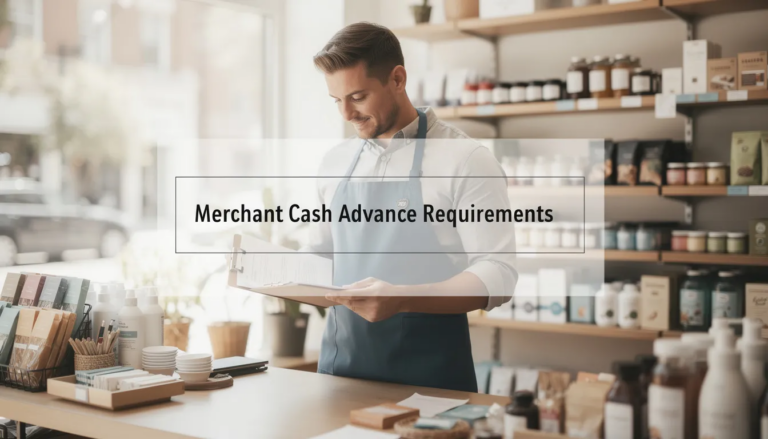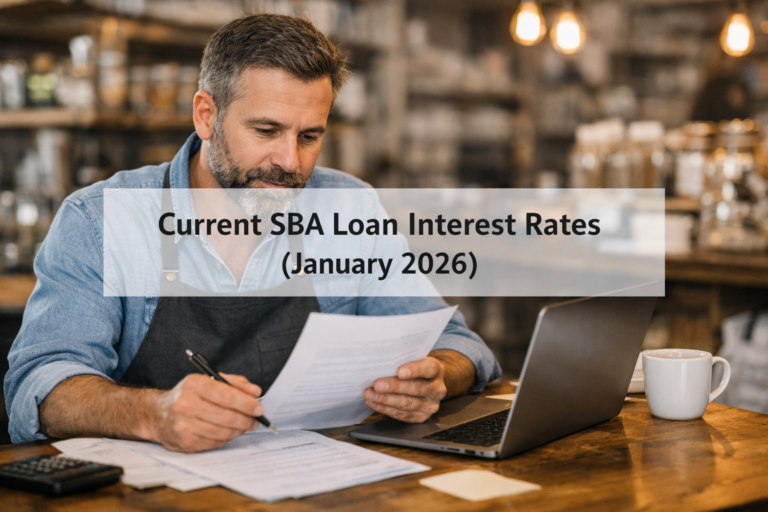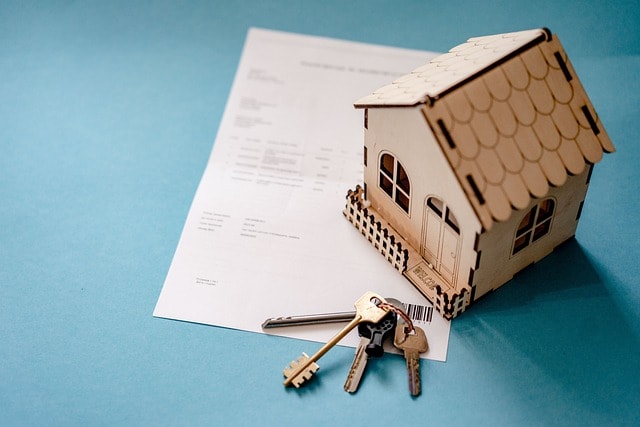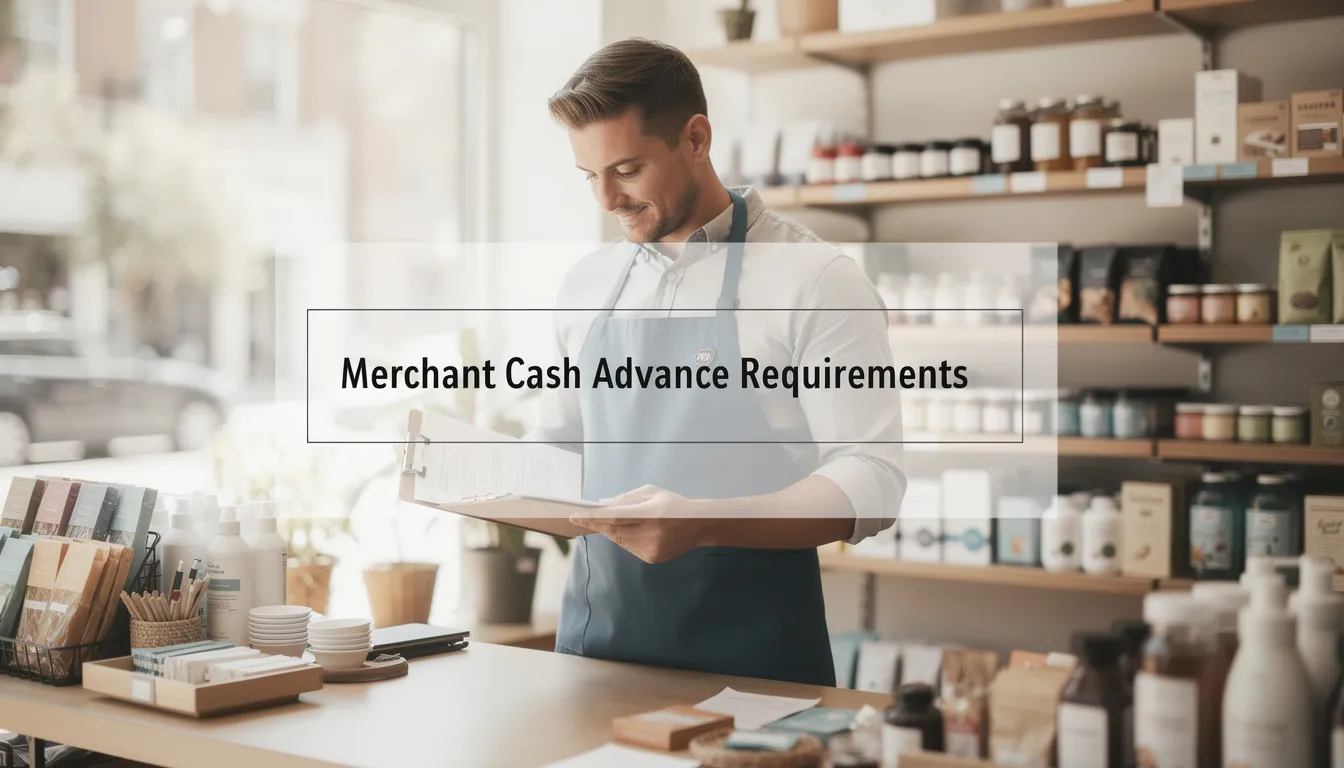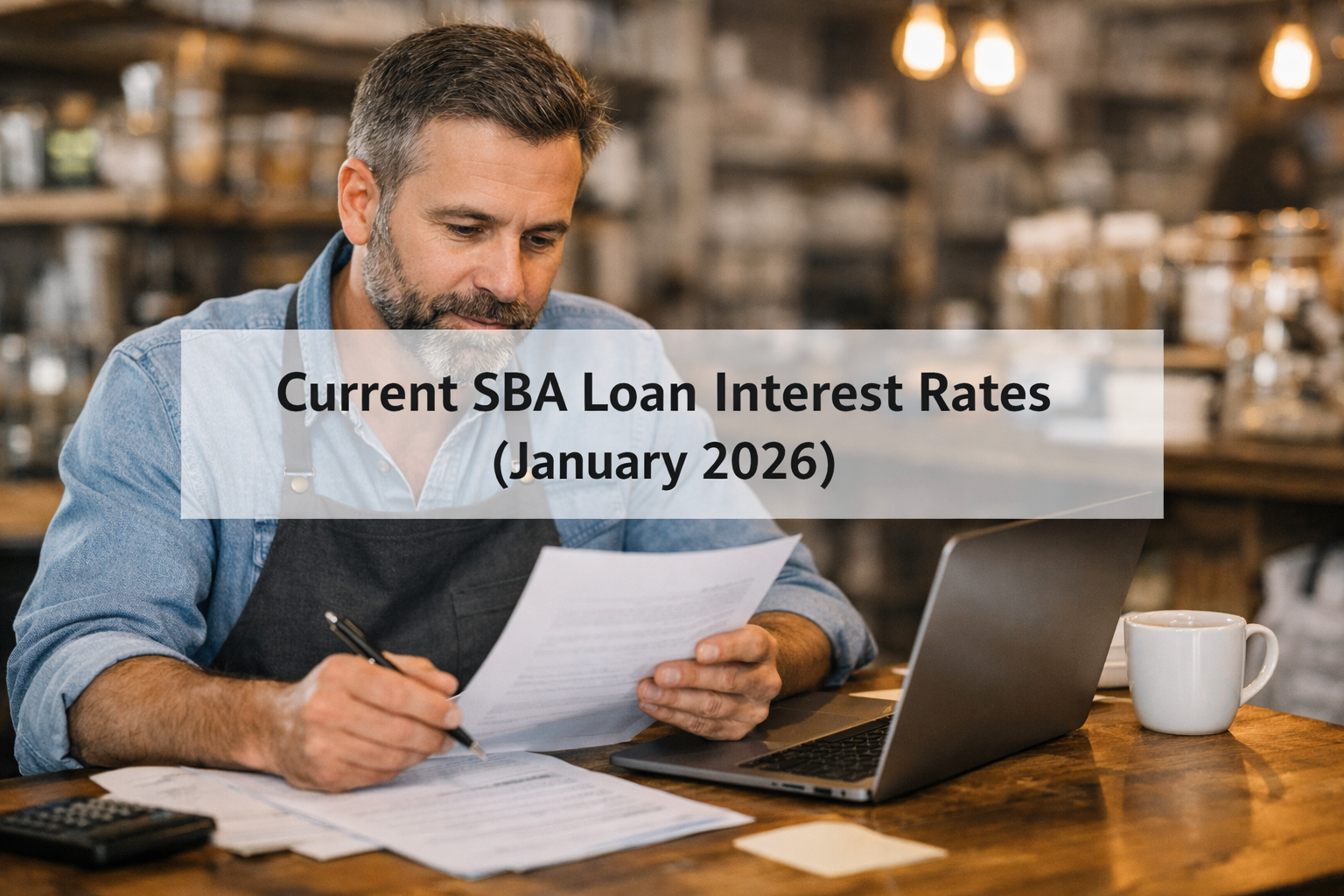What is an SBA Real Estate Loan?
Small business owners can use SBA loans for many business purposes. There are various SBA programs available; however, the two primary loans used for commercial real estate purchases are the SBA 7(a) loan and the SBA 504 loan.
SBA-backed loans range in size from $500 to $5.5 million. SBA loans can only be used for commercial real estate that the owner will occupy. SBA loans can also be used to finance working capital, purchase real estate, or make leasehold improvements.
SBA loans are available to a wide range of companies, but they have clear-cut exclusions, including real estate investment companies, casinos, and lobbying firms. However, there are SBA eligibility requirements.
Businesses must be officially registered and operate legally to be eligible for SBA loans. The average time required for an SBA loan to be approved typically ranges from 60 to 90 days.
How do SBA 7(a) Real Estate Loans work?
The SBA 7(a) loan is the most common and popular loan package within the SBA loan program. Business owners can use the funds for various purposes, including buying commercial real estate.
When using the loan proceeds for a real estate purchase, borrowers can get the following:
-
Up to $5 million in the loan amount.
-
Loan terms up to 25 years.
-
Interest rate between 9.25% and 15%.
SBA 7(a) loans are the most versatile type of loan offered by the SBA. SBA loans can be used for funding working capital, refinancing existing debt, and acquiring other businesses. Interest rates are based on the prime rate + the lender’s spread. As of December 2022, the prime rate is 7%. Borrowers can get a variable or fixed interest rate—review the Costs of SBA Loans for a complete breakdown of interest rates.
When using an SBA 7(a) loan to purchase real estate, you must use at least 51% of the property for business purposes. Borrowers cannot use the funds to purchase personal property or investment properties, such as apartment buildings, condominiums, or single-family homes, to rent them out. SBA 7(a) loans typically have a low down payment, but this requirement may vary for commercial real estate loans.
How do SBA CDC/504 Real Estate loans work?
The SBA 504 loan program provides funding for fixed assets, including commercial real estate or real estate construction. SBA 504 loans can go up to $5.5 million for certain energy efficiency projects or manufacturing operations. The program requires working with a Certified Development Company (CDC).
CDCs are the SBA’s community-based partners that regulate nonprofit organizations and promote economic development in the community. You must find a CDC to work with to begin the application process. Loans under the 504 program can cover ‘soft costs’ such as appraisals and construction interest. SBA 504 loans require a bank or credit union to hold a conventional first mortgage of up to 50% of project costs.
Borrowers may have to pay fees to the CDC and the central servicing agent. Other fees can include closing costs and the down payment. SBA 504 loans can typically only be used for fixed assets and certain soft costs.
If approved, you can get an SBA 504 commercial real estate loan with the following terms:
-
Up to $5.5 million per project
-
Terms up to 25 years
-
Interest rates are between 3%-7%
Interest Rate Breakdown:
-
The current SBA 504 25-year standard rate is 6.373%
-
The current SBA 504 25-year refinance rate is 6.401%
-
The current SBA 504 20-year standard rate is 6.390%
-
The current SBA 504 20-year refinance rate is 6.420%
-
The current SBA 504 10-year standard rate is 6.204%
How do I qualify for an SBA Real Estate Loan?
Each SBA-approved lender sets its own qualifications for credit approval. Approved businesses we work with here at UCS typically meet the following minimum qualifications:
-
Credit Score: 650+
-
Annual Revenue: $350k+
-
Time in Business: 2+ years
While the SBA doesn’t set minimum credit scores, it does have other guidelines. The business must be physically located and operate in the United States or its territories. The requested loan should not be available on reasonable terms from non-government sources to qualify for an SBA loan. SBA loan applications typically require a feasible business plan. The company must be a for-profit business.
Restricted Industries
The SBA also does not allow certain businesses to obtain an SBA loan. Restricted industries and businesses include the following:
-
Real estate investment firms.
-
Companies engaged in speculation.
-
Gambling businesses such as casinos.
-
Rare coin and stamp dealers.
-
MLM – Multilevel marketing (pyramid scheme) businesses.
-
Religious businesses, charities, and other nonprofits.
-
Government agencies.
-
Lending institutions.
There are some exemptions to these rules. For example, you could still qualify if your business gets less than one-third of its revenue from a state-approved lottery. Additionally, a for-profit subsidiary of a nonprofit is still eligible.
How to Apply for an SBA Real Estate Loan:
You can follow these steps to apply for an SBA 7(a) loan through United Capital Source. If applying for an SBA 504 loan, you will also need to work with a CDC in your area.
Step 1: Ensure You Qualify
You’ll need a credit score between 650 and 700, as well as a healthy and consistent cash flow. How you intend to use the money also plays a significant role.
You’ll need a detailed plan of how the funds will help you invest in and grow the business.
Step 2: Gather Your Documents
Be prepared to provide:
-
Driver’s License.
-
Business license or certificate.
-
Voided Business Check (for business bank account information).
-
Bank Statements.
-
Credit Report/Statement of Personal Credit History.
-
Business Tax Returns.
-
Credit Card Processing Statements.
-
Personal Tax Returns – 3 Years.
-
Business Tax Returns – 3 Years.
-
Business Plan (Not in all cases).
-
Personal Financial Statement.
-
List of Real Estate Owned or Business Leases, if applicable.
-
Debt Schedule/Loan/Rent/Lease Documentation
-
Deeds/Title/Ownership documentation for any collateral/Security
-
Current Profit & Loss Statements and Balance Sheet Year-to-Date
-
A/R and A/P Reports
-
United Capital Source 1 Page Application
Step 3: Fill Out the Application
You can begin the application process by calling us or filling out our one-page online application. Either way, you’ll be asked to enter the information from the previous section along with your desired funding amount.
Step 4: Speak to a Representative
Once you apply, a representative will contact you to explain the repayment structure, rates, and terms of your available options. This way, you won’t have to worry about any surprises or hidden fees during repayment.
Step 5: Receive Approval
SBA Loans through our network generally take 3-5 weeks to process. Once your file is approved and closed (45-90 days), the funds should appear in your bank account within a few business days.
What are the advantages of SBA Real Estate Loans?
Whether you use the SBA 7(a) loan or the 504 loan, SBA real estate loans offer several benefits over other types of small business real estate financing. The SBA partially backs SBA loans, which helps lower the risk for lenders.
Both loans carry high borrowing amounts, long repayment terms, and low interest rates. The SBA reports all on-time loan payments to the major credit bureaus, so paying off the loan helps build business credit.
In addition to setting interest rate limits, the SBA also places a cap on the fees that lenders can charge. You won’t have to pay origination fees.
The SBA lowered the equity requirements for 7(a) loans from 25% to 10%, enabling more small business borrowers to access funding. Access to SBA loans can spur small business growth during economic downturns.
What are the disadvantages of SBA Real Estate Loans?
Qualifying for an SBA loan can be a challenging process. In addition to the SBA’s requirements, SBA lenders typically require excellent credit scores, high annual revenue, and a minimum of multiple years in business.
The application process, which includes waiting for approval and funding, is time-consuming. You need to prepare exhaustive documentation when applying. Required documentation for an SBA loan application provides detailed information about every principal in the company.
It can take weeks for a decision from the SBA and even longer for some lenders to underwrite and close the loan. Some SBA loans take as long as 60 days to fund from the initial application date.
Both the 7(a) and 504 real estate loans require a down payment of at least 10%. Some lenders might require up to 20% for 7(a) loans. You typically need to provide collateral, usually the real estate acquired with the loan. All SBA loans also require a personal guarantee.
Additionally, you will need to pay a guarantee fee, which is based on the portion of the loan that the SBA guarantees. Most SBA loans don’t have a prepayment fee; however, if your real estate loan has terms of 15 years or longer, the lender may charge a prepayment penalty.
Pros & Cons:
Pros:
-
High maximum loan amounts – up to $5.5 million.
-
Low interest rates, which the SBA caps.
-
Long repayment terms – up to 25 years.
-
No original or application fees.
-
Can use the funds to purchase, renovate, or upgrade a commercial real estate property.
Cons:
-
High qualification requirements.
-
Lengthy application process & funding time.
-
Requires a down payment of 10% to 20%, depending on the loan type.
-
Prepayment penalty applies to loans with a 15-year maturity or longer.
Frequently Asked Questions:
Here are the most common questions about SBA real estate loans.
Can I get an SBA Real Estate Loan with bad credit?
No, SBA loans require good to excellent credit. However, there are other financing options available. Consider bad credit business loans if you need help with small business financing.
While the interest rates for these loans are high, you could use them as bridge financing while building or repairing your credit. Some business loans with bad credit may require additional collateral, but many are available as unsecured financing.
Loans of $50,000 or less are available through the microloan program for businesses that are unable to secure financing elsewhere. However, you cannot use SBA microloan funds to purchase real estate.
What types of real estate can I purchase with an SBA Loan?
For SBA loans, you can purchase land, existing buildings, or new building construction, if:
-
60% of new construction property used for business purposes.
-
51% of existing property is used for business purposes.
Some examples would include buying an office building, a storefront, warehouses, factories, and more.
You can also use 7(a) or 504 loan proceeds for:
-
Improvements, such as adding curbs, gutters, or parking lots.
-
Improving or upgrading a building (new electrical systems, renovating a facade, etc.)
-
Adding equipment or machinery to a property.
Is the SBA 7(a) or 504 Loan better for commercial real estate?
Both SBA 7(a) and 504 loans have their benefits and drawbacks. Determining the best one depends on your unique business needs.
The interest rates for 504 loans are lower, but you must work with a CDC, and the project must meet specific employment or public policy goals. SBA 7(a) loans offer greater flexibility in how you can utilize the funds. You can use the funds to:
-
Refinance existing debt.
-
Solve working capital needs.
-
And more.
What are my options if I am unable to obtain an SBA Loan?
Several lenders offer loans that can fund commercial real estate acquisitions. You could potentially use a business term loan to acquire commercial real estate if you can’t qualify for an SBA loan. You could also use an equipment loan to upgrade an existing business property.
SBA Commercial Real Estate Loan – Final Thoughts
Both SBA 7(a) and 504 loans provide the necessary funding and terms to purchase commercial real estate. However, you’ll need a down payment, a good credit score, and solid business financials to qualify.
If you do qualify, SBA loans are the most advantageous small business financing packages available, whether for real estate or other business needs. Contact us if you are interested in applying for a commercial real estate loan.




